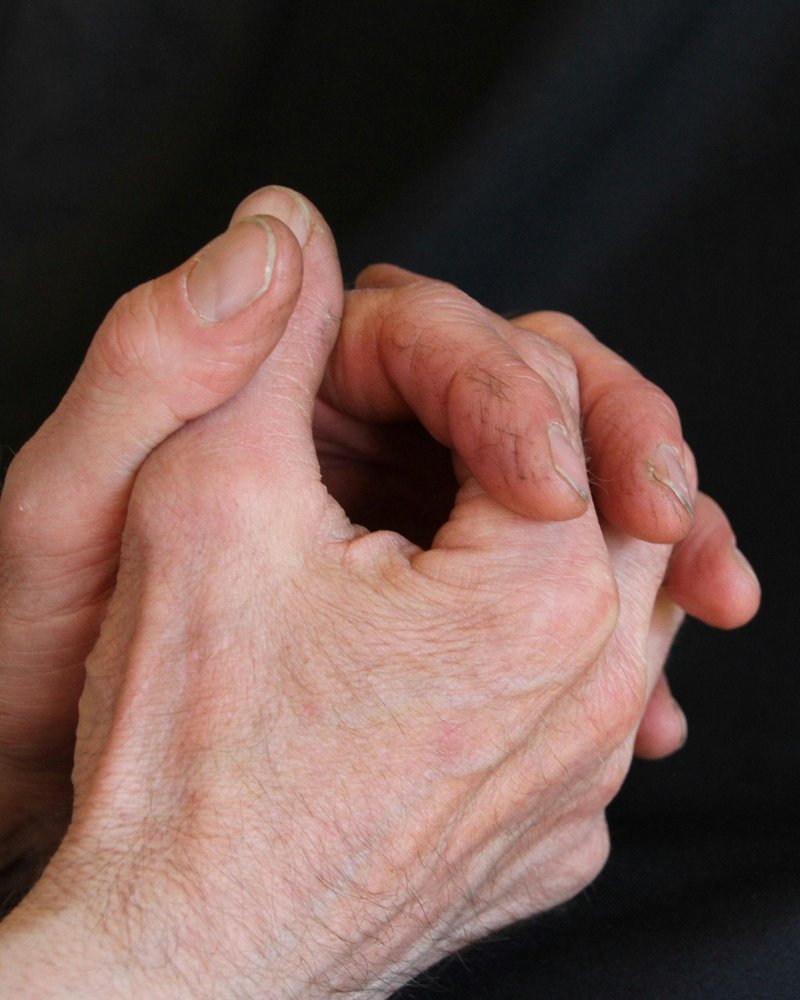5 Warning Signs Your Masculine Edge Is Slipping Away 🧬
Most men don’t realize how vital testosterone is until it starts to drop. If you’ve been feeling “off,” noticing physical or emotional changes, or lacking your usual drive—your hormones could be to blame. Understanding how to tell if your testosterone is low is the first step to reclaiming your health, performance, and confidence.
1. Your Sex Drive Isn’t What It Used to Be
A sudden drop in libido is one of the first signs your testosterone levels might be falling. This isn’t just about desire—low testosterone can affect arousal, performance, and overall sexual satisfaction. If you’ve noticed a persistent lack of interest, it’s not just in your head—it could be hormonal.
2. Fatigue That Doesn’t Go Away
Constantly tired even after a full night’s sleep? Low T could be draining your energy reserves. Testosterone fuels stamina and vitality. When it drops, you may feel like you’re dragging yourself through the day, no matter how much rest you get.
3. Mood Swings and Depression
Many men overlook this one. But mood changes, irritability, and even depression are directly linked to low testosterone. Hormonal imbalances can affect the brain’s chemistry, impacting how you feel emotionally and mentally.
4. Difficulty Gaining Muscle or Losing Fat
Testosterone plays a crucial role in muscle development and fat distribution. If you’re struggling to see progress at the gym despite working hard, or suddenly gaining belly fat—low testosterone might be sabotaging your results.
5. Erectile Dysfunction (ED)
Testosterone is a key hormone involved in achieving and maintaining erections. If you’re experiencing frequent issues, it might not just be stress or age—it could be a hormonal problem. Combine this with low libido, and the signs become hard to ignore.
6. Reduced Semen Volume
Low testosterone often results in less semen production, which you may notice during ejaculation. It’s a lesser-known but reliable indicator of hormonal imbalance.
7. Shrinking Testicles or Reduced Hair Growth
Yes, it happens. Testosterone affects hair growth and testicle size. A decrease in either could be a physical signal that something isn’t right internally.
What Causes Testosterone to Drop?
Several lifestyle and health factors can cause low T, including:
- Chronic stress
- Lack of sleep
- Poor diet
- Obesity
- Excessive alcohol or drug use
- Hormonal disorders or certain medications
Should You Get Tested?
If you identify with any of the signs above, it may be time to get your testosterone levels checked. A simple blood test can reveal where your hormone levels stand. But even without lab work, knowing how to tell if your testosterone is low gives you the power to take action.
Can You Fix Low Testosterone Naturally?
Absolutely. Many men restore healthy levels through lifestyle changes like better sleep, weight management, stress reduction, and testosterone-friendly foods. In fact, some have even seen improvements by cutting back on masturbation—which may impact hormone production in some cases. Can masturbation decrease testosterone? Find out what the science says.
Final Thoughts
Your body sends signals when something is off. Don’t ignore them. Learning how to tell if your testosterone is low could be the wake-up call you need to improve every aspect of your health—from the bedroom to the boardroom.
Looking for a proven path to natural hormone balance, better sex, and peak male performance? Start your transformation with this step-by-step guide.
What Does Science Say About Low Testosterone?
Research consistently links low testosterone to various chronic health issues. According to a study published in the Journal of Clinical Endocrinology & Metabolism, men with low T have a higher risk of cardiovascular disease, type 2 diabetes, and even early mortality. That’s right—testosterone isn’t just about sex or muscles. It’s about your life span.
Another major study found that nearly 1 in 4 men over the age of 30 has low testosterone. Even worse? Most of them have no idea. That’s why it’s crucial to recognize the symptoms early and take action before your body pays the price.
How to Tell If Your Testosterone Is Low Without Blood Tests
While lab tests are the gold standard, several indicators can hint at hormonal decline even before you step into a clinic. These include:
- Chronic lack of motivation or enthusiasm
- Loss of competitive edge
- Feeling emotionally flat or numb
- Unexplained weight gain, especially in the belly area
- Weaker morning erections
Combine three or more of these and you’re likely dealing with some degree of testosterone decline.
Natural Remedies That Actually Work
Instead of jumping straight into synthetic hormone replacement therapy (HRT), many men prefer to try natural methods first. Here’s what research and real-world results say actually works:
1. Strength Training & HIIT
Resistance training, especially heavy compound lifts, has been shown to increase testosterone levels. High-intensity interval training (HIIT) also stimulates hormone production and burns fat fast.
2. Zinc and Vitamin D
Both are crucial for hormone production. Foods like oysters, eggs, and fortified cereals can help, or you can supplement wisely. Make sure to get your Vitamin D levels tested—most men are deficient.
3. Sleep Like a King
Studies show that poor sleep is one of the fastest ways to tank your testosterone. Aim for 7–9 hours of quality sleep every night, and try to sleep in total darkness to optimize melatonin.
4. Stop Sabotaging Your T Levels
Limit alcohol, cut processed sugar, and ditch environmental estrogens (like BPA plastics and soy overload). Your testosterone will thank you.
When Low T Affects Your Stamina in Bed
Low testosterone doesn’t just kill libido—it also affects your stamina, erection quality, and confidence. If you’re looking for ways to naturally improve your performance, check out our full guide on how to improve stamina in bed naturally. You’ll find powerful tips to regain your edge between the sheets.
Why Most Men Ignore the Symptoms Until It’s Too Late
There’s a cultural stigma that tells men to “tough it out.” That’s dangerous. Ignoring symptoms not only ruins your performance and motivation—it can lead to more serious problems like osteoporosis, infertility, and metabolic syndrome.
Remember: taking care of your testosterone levels isn’t weakness—it’s smart, preventative health.
Action Plan: What to Do If You Suspect Low T
- Track your symptoms for 7–14 days
- Clean up your diet and start training regularly
- Prioritize 8 hours of sleep each night
- Consider adding zinc, magnesium, and Vitamin D
- Reduce stress—try cold showers, mindfulness, or breathwork
- Limit fapping and explore semen retention for hormonal reset
Take back control of your testosterone and you’ll feel the shift—not just in the bedroom, but in your energy, drive, and presence as a man.
Testosterone Levels: What’s Normal vs. What’s Not
According to the American Urological Association, normal testosterone levels range from 300 to 1,000 ng/dL. But here’s the kicker—just because your levels are “within range” doesn’t mean you’re operating at your best.
Many men feel symptoms even at 400 ng/dL, which is still considered “normal.” That’s why the focus should be on optimal levels, not just passing the blood test threshold.
Signs of Optimal Testosterone
- Morning wood every day
- High energy levels and sharp mental focus
- Strong libido and erectile strength
- Ease of building muscle and burning fat
- Stable mood and emotional resilience
3 Myths About Low Testosterone You Need to Forget
“Only old men suffer from low T”
False. Low testosterone can affect men as young as their 20s, especially with today’s sedentary lifestyles, poor nutrition, and stress overload.
“If I can get an erection, my T levels are fine”
Not necessarily. Erections are influenced by many factors—testosterone is just one. You could still have low T and experience inconsistent or low-quality erections.
“I need steroids or TRT to fix this”
Nope. While TRT can help in some cases, many men restore healthy T levels through natural interventions. Diet, training, sleep, and stress management are often more powerful than people realize.
Real Results from Testosterone Optimization
We’ve heard from thousands of men inside the supremepenis.com method who turned their lives around. From zero libido to passionate nights. From no motivation to crushing goals. From belly fat to six-pack confidence. It all starts by addressing low testosterone.
Whether you’re 25 or 55, optimizing your hormones gives you the masculine edge most men lost without noticing.
Summary: Be the Man Who Listens to the Signs
Now you know how to tell if your testosterone is low. You know the signs. You understand the science. You’ve read the myths. What’s left is action.
Want a step-by-step blueprint that has helped thousands of men reclaim their confidence, size, and masculine power? Discover the natural growth method right here.
Quick Tips to Boost Testosterone Starting Today
- Drink more water and ditch sugary sodas
- Eat more eggs, steak, and healthy fats
- Take cold showers to increase circulation and alertness
- Reduce screen time—especially before bed
- Have more real sex and less porn
- Lift heavy things. Regularly.
Remember: small changes done consistently create massive transformations. Be the man who takes charge—starting now.
You don’t need to accept fatigue, low sex drive, or shrinking confidence as “part of aging.” Every man deserves to feel strong, desired, and powerful. Start by understanding what your body is telling you. Then take action—with knowledge, consistency, and the right guidance. Your best days aren’t behind you—they’re just one decision away.
🧪 Quick Comparison: Normal vs Low Testosterone Symptoms
| Symptom | Normal | Low T Indicator |
|---|---|---|
| Morning Wood | Regular (4–5x/week) | Rare or absent |
| Energy Levels | Consistent | Fatigue by midday |
| Libido | Strong and frequent | Low interest in sex |
| Mood | Stable | Irritable or depressed |
FAQs
How can I test my testosterone at home?
You can use saliva or blood test kits, but symptoms like fatigue, low libido, and mood swings are key clues.
Can low testosterone be reversed naturally?
Yes. Through better sleep, diet, exercise, and stress management, many men boost their T without medication.










